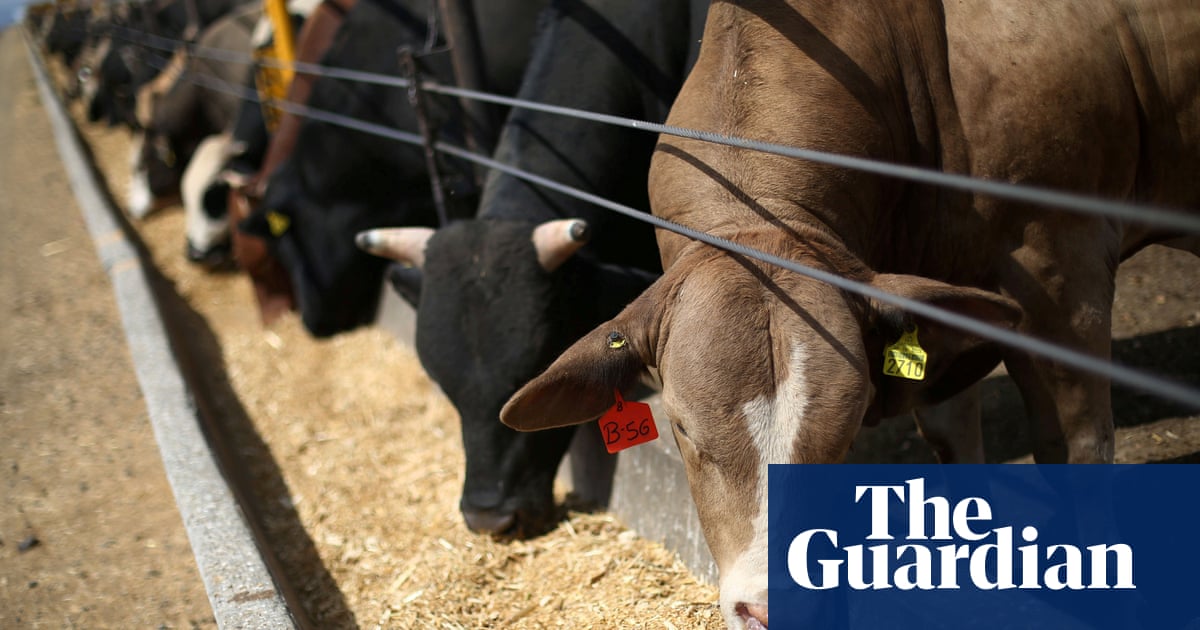
High-carbon goods imported into the UK should be subject to new tariffs, to help ensure other countries are fulfilling their obligations to reach net zero greenhouse gas emissions as well as the UK, an influential committee of MPs has said.
A carbon border adjustment mechanism (CBAM) would penalise companies and countries trying to evade responsibility for cutting emissions, the MPs said, and provide an incentive for certain industrial sectors to move away from environmentally damaging practices.
Philip Dunne, the Tory chair of the committee, said such a move was needed to reach net zero: “The targets, timetables and overall strategy for meeting net zero have been set: now the work must speed up to make the ambitions a reality.”
For some industries, such as steelmaking, moving to the greener production methods needed to cut the UK’s emissions in line with the 2050 net zero target may incur short-term costs, in new equipment and techniques.
But if rivals in other countries fail to take such steps, and carry on using fossil fuels and emitting high amounts of carbon, their products could be cheaper and undercut the UK, leaving British industry at a severe disadvantage.
This is known as carbon leakage, as greener industries in the domestic market lose out and the carbon is emitted overseas instead.
A CBAM could level the playing field, by imposing tariffs or taxes on imports of such products, and has broad support among many economists, provided it can be used to target specific products and practices rather than be used as a protectionist measure to keep out goods from developing countries in particular.
The environmental audit committee of MPs called on ministers to act unilaterally in putting such a tax in place. The EU is considering imposing CBAMs, and the US government has also signalled it could be open to such measures in the future.
The Treasury is understood to be wary of imposing CBAMs, as they could increase the price of some goods at a time when consumers are already facing a cost-of-living crisis. There are also fears in government that implementing a CBAM now would set back attempts by ministers to forge post-Brexit trade deals around the world.
But Dunne said the MPs had considered these points carefully. “Our committee is clear that the pros of a CBAM outweigh the cons,” he said. “For too long the emissions from our consumption have effectively been ‘offshored’, leaving the problem as out of sight and out of mind. But we must all take greater responsibility for our consumption and the practices that our businesses and organisations adopt.”
The UK is president of the UN climate negotiations for most of the rest of this year, having hosted the Cop26 climate summit in Glasgow last November. That puts the government in a powerful position to pioneer CBAMs, which have been widely discussed for years but not put into effect.
Dunne added that the government should consult with businesses at all stages: “Our committee is under no illusions that this will be a challenging policy to get right, with a clear advantage to moving multilaterally with other trading partners, and therefore all businesses must have a voice in the discussions, and government must be upfront with its intentions.”
A Treasury spokesperson said: “The UK is leading the way on the transition to net zero, has reduced emissions faster than any other country in the G20 and continues to have the most ambitious climate targets for 2030.
“As we transition to net zero, we recognise the importance of continuing to address the risk of carbon leakage to ensure that our ambitious policy of decarbonisation is not undermined.
“This is a global problem, which is why we’re working with our international partners to address this and other climate challenges as well as exploring domestic options.”












